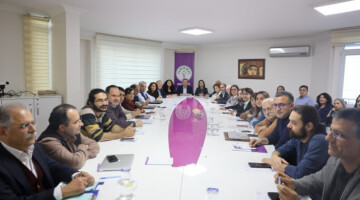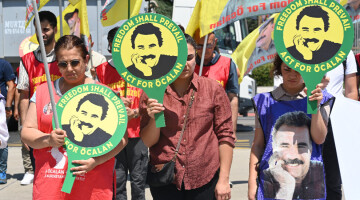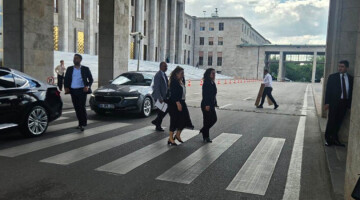U.S.-based watchdog Freedom House has released its Freedom in the World 2017 report, which ranked Turkey 2nd country with net declines in political rights and civil liberties last year.
According to the report, titled "Populists and Autocrats: The Dual Threat to Global Democracy", in 2016, populist and nationalist political forces made astonishing gains in democratic states, while authoritarian powers engaged in brazen acts of aggression, and grave atrocities went unanswered in war zones across two continents.
Of the 195 countries assessed, 87 (45 percent) were rated Free, 59 (30 percent) Partly Free, and 49 (25 percent) Not Free. The Middle East and North Africa region had the worst ratings in the world in 2016, followed closely by Eurasia.
The report warned that all of these developments point to a growing danger that the international order of the past quarter-century—rooted in the principles of democracy, human rights, and the rule of law—will give way to a world in which individual leaders and nations pursue their own narrow interests without meaningful constraints, and without regard for the shared benefits of global peace, freedom, and prosperity.
The latest findings of Freedom in the World indicate that a total of 67 countries suffered net declines in political rights and civil liberties in 2016, compared with 36 that registered gains. This marked the 11th consecutive year in which declines outnumbered improvements.
In the report, Turkey ranks the second country after the Central African Republic with the largest 10-year score declines in freedom. Turkey was followed by The Gambia, Mali, Burundi, Bahrain and Mauritania.
Accordingly, the refugee agreement with Turkey—an already dubious haven for refugees given its raging Kurdish insurgency and regular terrorist attacks—became a deeper source of embarrassment after Turkish president Recep Tayyip Erdoğan embraced an unvarnished form of authoritarianism in response to a failed coup attempt in July. Having put down the coup, the government imposed emergency rule that resulted in the arrest of nearly 40,000 civilians, the imprisonment of dozens of journalists for their work, the shuttering of hundreds of media outlets and nongovernmental organizations (NGOs), the arrest of the leaders and hundreds of officials from the third-largest party in the parliament, and the firing of more than a hundred thousand civil servants.












